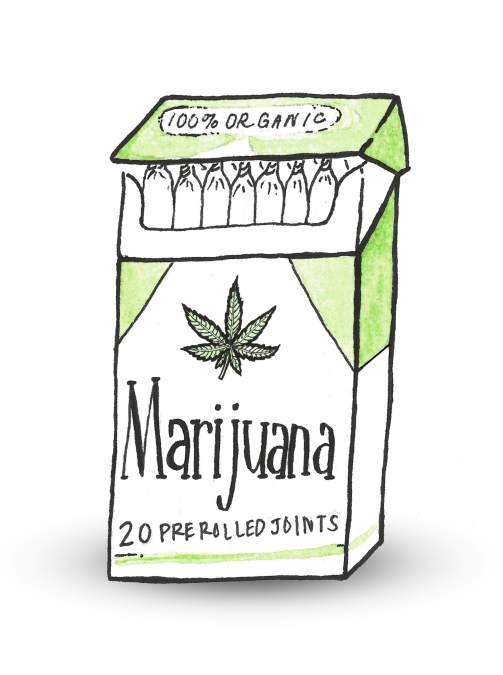After 24 years, and several locations, it’s still going strong.
“Not so sure about hitting Hempfest this year, bro,” said my biggest stoner pal TJ, loading yet another fat bowl of black market Blue Dream. “I mean, we legalized it. What’s the point?”
“I’ll tell you why,” I replied, sucking down the tube. “As soon as I can remember what the question was!”
Amazingly, Hempfest is celebrating its 24th year this weekend. In addition to being the world’s largest cannabis rally, Hempfest has always advertised itself as a “protestival,” commemorating the advances of cannabis, and protesting the ongoing War on Drugs—and the fact marijuana is still very much illegal at the federal level.
“Dude,” I began, using a term I reserve only for our stoned sessions. “First, we’re fucking celebrating. Couple years ago you had to worry about going to jail if ya got caught with a bag o’ weed. Today, a $27 ticket….Dude!”
“No, I get it, bro,” TJ replied, no doubt recalling the numerous times he was busted for growing weed in his basement, giving him a permanent black mark on his record and winnowing the field of employers he could work for over the years.
“For me, a big part of the marijuana movement is being around a like-minded group of progressive, liberal, groovy….well potheads,” I noted, trying to sound better than the long-haired hippies—read “cannabis connoisseurs”—I resemble and represent. “Not everyday. But at least once a year. And I’ll admit it: I like patchouli.”
Started by peace-activist Vivian McPeak and cannabis crusader Gary Cook, Hempfest began at Volunteer Park in 1991. (It was originally called the Washington Hemp Expo.) The festival outgrew Volunteer Park as well as Gas Works Park, eventually finding its current home along Elliott Bay at Myrtle Edwards Park, the Olympic Sculpture Garden, and Centennial Park.
“We have been to a few good ones,” TJ mused. “Was it two years ago we bought those Space Cakes from that rasta chick?” (The sale or use of cannabis is not permitted at Hempfest.) “I think I asked her to marry me in the Ganja Gardens…”
“Dude [again, I can’t help using that word when I’m around this guy]! Hempfest is also free! How many festivals with kick-ass music in a mind-blowing setting are flippin’ free?!” In my effort to have TJ attend, I was appealing to his, let’s call it, “financially prudent” side. (Hempfest costs over $1 million dollars a year to produce. Please donate at the event and through annual memberships.)
“We have seen Heart blow the doors off that place a bunch of times,” he admitted. “And damn, Ann was sexy as hell last year; those ladies are still rockin’ babes…”
Over the years, Hempfest has featured hundreds of musical acts, including the Super Sonic Soul Pimps, DXD, Rockin’ Teenage Combo, Herbivores, 7 Year Bitch, Nu Sol Tribe, Vicci Martinez, and Artis the Spoonman.
“I’m still tripping about that Timothy Leary sighting we had,” TJ mumbled, rolling his fourth fatty. “Pretty sure he was there.” (Professor Timothy Leary attended the Peaceworks Park Peace Vigil in 1990.)
In fact, Hempfest isn’t all bands and buds and Butterfingers; there’s an educational element, including Hemposium panels featuring the nation’s leading voices on hemp, medicinal uses of cannabis, and ongoing advocacy, including the No Prison for Pot campaign. Over the years, Hempfest has featured the likes of Jack Herer (activist author of The Emperor Wears No Clothes), Keith Stroup (NORML), Randi Rhodes (Air America), former Seattle Chief of Police Norm Stamper, travel guru Rick Steves, Rick Cusick (High Times), Jack Cole (LEAP), master grower Ed Rosenthal, Dennis Kucinich, and yes, Woody Harrelson.
“Fucking starving, dude,” TJ yelled while peering into his empty fridge.
“That reminds me of when I knew the pendulum had swung, man,” I tangentially countered. “Remember when the cops handed out bags of Doritos at Hempfest?”
“I do not.” (In 2013, Seattle Police conduced Operation Orange Fingers, handing out bags of Doritos with Dos and Don’ts about the new marijuana laws, including, “DON’T drive while high,” and “DO listen to Dark Side of the Moon at a reasonable volume.”)
Hempfest is a grassroots community gathering—and one of the few that has a peaceful vibe through-and-through. Thanks to the thousands of well-trained Hempfest volunteers, as well as a mellow SPD, the event has had hundreds of thousands of attendees without a single major health incident, fight or overdose. (It helps the rally isn’t AlcoholFest.)
“The real reason to go, Bro-ham?” I began, standing on the couch for emphasis and attempting a Pot-Power salute. “The work’s not done, man! Sure you and I can buy outrageously expensive herb at stores here in town, but the Feds think it’s a felony and a hard-core narcotic! Six-hundred and eighty-thousand Americans were arrested last year for marijuana-related offenses! Our war veterans don’t have access to it to help with their PTSD, and parents are having their kids taken away for using it as medicine all over the country!”
“Dude,” TJ replied, looking at my shoeless feet on his couch. “I think you crushed the remote, man.”
“The Revolution will not be televised!” After our laughter died down, I asked a serious question. “Is there a remote possibility you’ll go to Hempfest with me, man?”
“I do need a grinder…” TJ noted, stoned to the bejesus. “Allll right. What day are we goin’?”
Seattle Hempfest runs Friday, August 14-Sunday, August 16, from noon to 8 p.m., at Myrtle Edwards and Centennial Parks. See hempfest.org. Thanks to Vivian McPeak’s book, Protestival: Seattle Hempfest, for clearing up many of our foggy memories.





